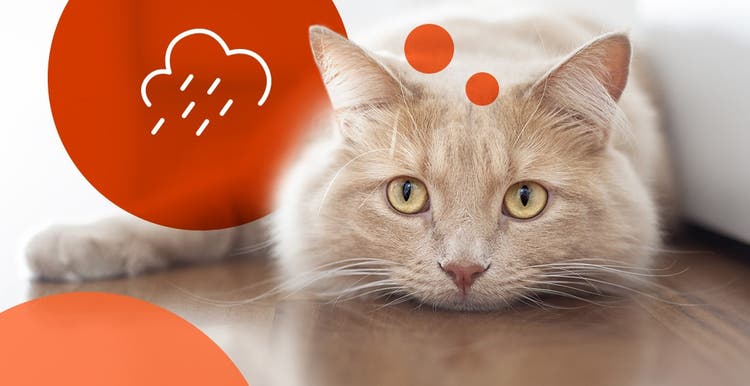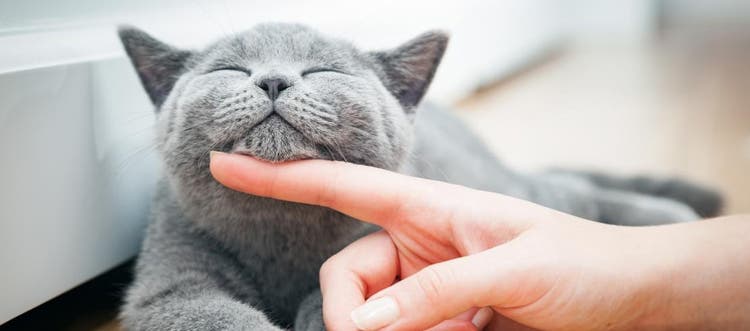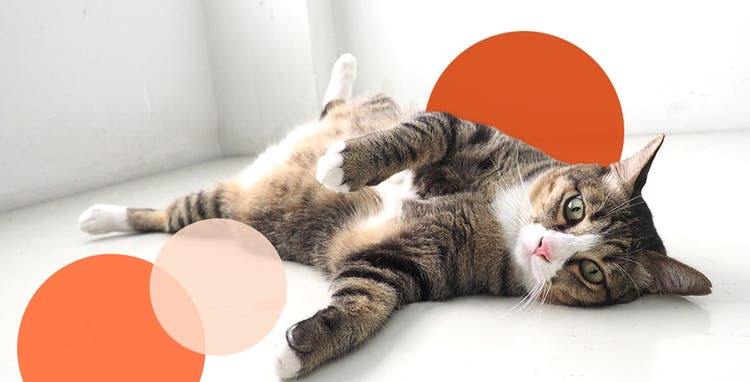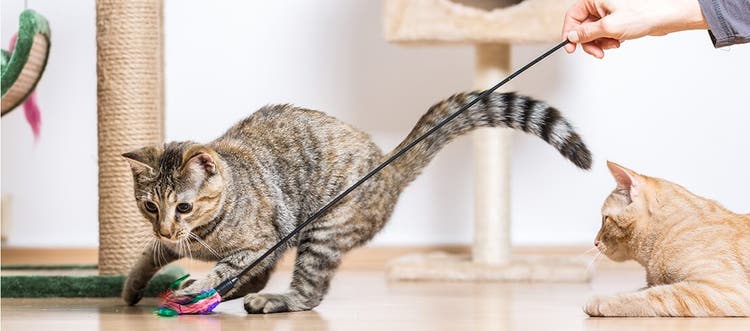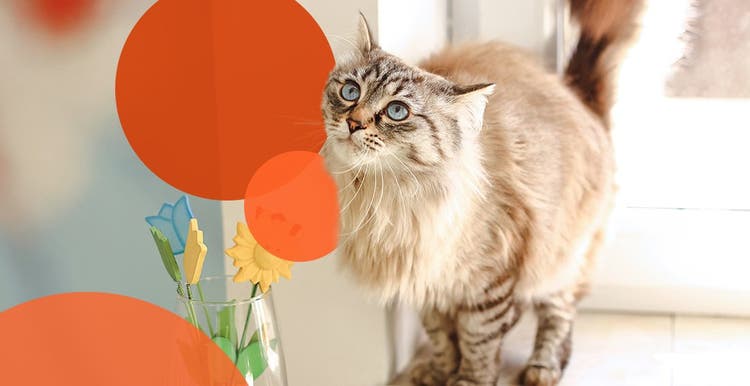Tips for recognizing and treating cat anxiety.
Every cat has their own distinct personality. While their disposition may change a little as they age, if your cat has developed a new level of skittishness along with other behaviors you’ve never noticed before, your pet may have anxiety.
Like other behavioral conditions, anxiety typically develops in cats around the time they become adults, between 12 and 36 months of age. Anxiety is when your cat starts to anticipate something bad is coming and changes their personality before it actually happens. Anxiety can feel like a permanent shift, rather than temporary stress from a loud noise or uncertain situation.
Learn the symptoms and causes of cat anxiety — and what you can do to help.
Cat Anxiety Symptoms
If you’ve noticed your cat behaving in ways that feel a bit off — and the behaviors aren’t playful in nature — anxiety might be the cause. Your cat could display one, some or many different symptoms listed below:
- Increased skittishness that seems fear-based and not playful
- Avoiding the litter box and/or starting to spray
- Eating less, or eating much faster
- Hiding at times your cat normally comes out, like in the morning or when you get home
- Excessive grooming, possibly to the point of gradual hair loss
- Increased vomiting/hairballs
- Increased aggression or submissiveness
- Increased vocalization not centered around food
- Increased sleeping, especially when the entire family is home
As a general rule, don’t brush off symptoms centered around your cat’s eating or bathroom habits. These could be signs of other health concerns that your vet should check out sooner rather than later.
What Causes Anxiety in Cats?
There are countless potential causes of cat anxiety, and unfortunately, many are out of an owner’s control. Causes of cat anxiety can include:
- Moving to a new house or living space
- A sudden change in normal routines by others in the household
- A traumatic experience as a kitten, such as neglect, being moved from shelter to shelter or coming from a feral colony
- Lack of socialization, or isolation as a young kitten without littermates or a mother
- Prolonged illness or injury that required lengthy healing
- Viral infection or mild poisoning (such as from lead paint)
- A frightening experience connected to a loud noise or scary site that may be inadvertently recreated at home
- Lengthy separation from the owner or family
- A new member of the family, human or pet
How to Reduce Cat Anxiety
Reducing or eliminating your cat’s anxiety will take a combination of patience, care and effort. The following tips provide effective ways to help with cat anxiety relief.
Tip 1: Talk to Your Vet
Cat anxiety is a type of illness. Like most illnesses, you can help treat it by turning to a professional, such as a vet or animal behavior specialist. Your vet may recommend treating your cat medicinally, in the form of a prescribed medication from your vet or a natural remedy for cats available over the counter. Keep in mind that medication is not a guaranteed cure. It can help, but you will also need to incorporate some of the other tips listed below.
Tip 2: Find a Comfort Product
If the idea of medicating your cat isn’t for you, you’re not alone. There are many products designed to help relieve different symptoms of cat anxiety, such as calming pheromone diffusers, collars and even comforting compression shirts. Calming cat treats and foods are also readily available at your favorite pet store.
Tip 3: Teach Your Cat a New Trick
Giving your cat more attention (when they want it) and exercise is a great way to help relieve anxiety. By training your cat to do something new, you can help focus their energy in a completely different way.
Training your cat doesn’t have to be complicated. It can be as simple as getting a new cat toy or puzzle that requires more thought than just chasing. You could also teach your cat to play fetch; try positive reinforcement, in the form a small treat, when your cat brings a toy back to you, or use a clicker as an audible way to connect the action to more play. You might be surprised at how quickly your cat starts to understand the game of fetch!
Tip 4: Know When to Help
When your cat shows any symptom of anxiety, your immediate reaction might be to provide comfort. But unless your cat jumps into your lap, you should try to avoid comforting them with treats or petting — your cat may interpret it as rewarding the anxious behavior. Instead, talk in a soothing voice and try to make the environment around your cat as calming as possible. If your cat is hiding, leave them alone until they decide it’s time to come out.
Always avoid punishing your cat or getting angry at them for having anxiety. This will only magnify the behavior and make it more difficult to correct.
Tip 5: Try to Desensitize Your Cat
This is both the toughest and most effective way to help reduce cat anxiety. It can be hard because it relies on your ability to recognize when your cat’s anxiety is about to happen — not during or after. And cats are masters at hiding any sign of weakness or discomfort until it’s overwhelming them. However, your cat will likely display some signs that a feeling of anxiety is building up if you pay close attention.
When you notice your cat getting more skittish, try to counter these negative feelings with more positive experiences. From simple play to a small food reward, by diverting your cat’s attention from a negative association to a fun opportunity, you can help reduce the feelings of anxiety that were bubbling up. Over time, your cat may be able to self-manage feelings of anxiousness to greatly reduce their effect — if not completely eliminate them.
References
- PetMD. (2018, August 29) 6 Cat Calming Products to Help Ease Cat Anxiety. Retrieved May 31, 2020, from https://www.petmd.com/cat/behavior/6-cat-calming-products-help-ease-cat-anxiety
- PetMD. (2020, August 13) The Ultimate Guide to Cat Anxiety. Retrieved October 27, 2021, from https://www.petmd.com/cat/conditions/behavioral/c_ct_fear_phobia_anxiety
- Stressed Cat. (2020, April 21) Retrieved October 27, 2021, from https://www.battersea.org.uk/pet-advice/cat-care-advice/reducing-your-cats-stress
Related Articles

New Cat or Kitten: Our Downloadable Guide
Thinking about adding a feline to the family? There are so many emotional, social and physical benefits to owning a cat. Check out our free guide, also available to download!

